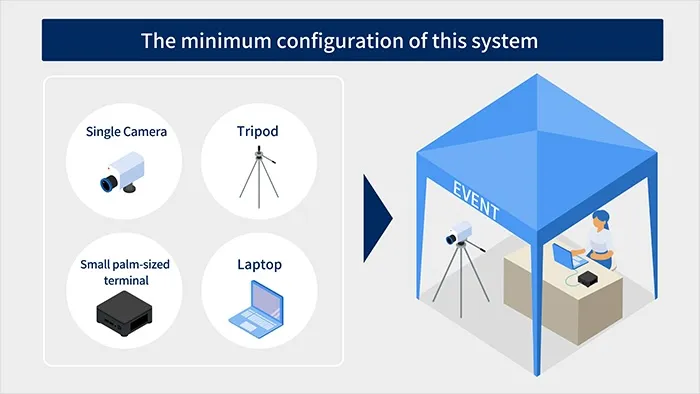NEC Launches new system using Biometric Authentication Technology
NEC
Corporation will launch a new system using biometric
authentication technology that is capable of quickly authenticating large
numbers of people at one time, even while they are in motion. The system is
expected to accelerate admission and reduce congestion for busy events and
infrastructure. NEC will begin providing the system globally in September 2024,
initially focusing on Japan, the United States, and Singapore.
In recent years, the number of visitors to airports, train
stations, tourist attractions and other amusement facilities in Japan has been
rising sharply. At the same time, however, facility expansions and additions to
alleviate congestion have not kept pace. At airports in particular, the number
of passengers in Japan is projected to double (*) by 2041 compared to 2019, and
there is a need to improve the efficiency of passenger services. Conventionally,
when large numbers of people have converged on areas such as theme parks,
offices, factories, etc., heavy amounts of congestion have occurred, together
with long lines at flapper gates and security screening areas. This new system
features NEC’s world-class face recognition technology and matching technology,
which evaluates the characteristics of movement and clothing to quickly detect
persons in designated areas. Furthermore, the system can continue to
biometrically identify persons even as they pass through crowded areas. In
addition, the system can authenticate large numbers of people while they are in
motion, including as many as 100 persons per minute in real time. Since the
system does not require gates, as is the case with conventional admission
control systems, it reduces lines and congestion without expanding or adding to
existing facilities, thereby improving convenience and efficiency. When a
person whose face image has not been registered attempts to pass, the system
can provide visual alerts on a display or illumination installed overhead or on
the floor.































Leave A Comment